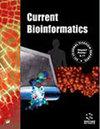DiffSeqMol: A Non-Autoregressive Diffusion-Based Approach for Molecular Sequence Generation and Optimization
IF 2.9
3区 生物学
Q3 BIOCHEMICAL RESEARCH METHODS
引用次数: 0
Abstract
Background: The application of deep generative models for molecular discovery has witnessed a significant surge in recent years. Currently, the field of molecular generation and molecular optimization is predominantly governed by autoregressive models regardless of how molecular data is represented. However, an emerging paradigm in the generation domain is diffusion models, which treat data non-autoregressively and have achieved significant breakthroughs in areas such as image generation. Methods: The potential and capability of diffusion models in molecular generation and optimization tasks remain largely unexplored. In order to investigate the potential applicability of diffusion models in the domain of molecular exploration, we proposed DiffSeqMol, a molecular sequence generation model, underpinned by diffusion process. Results & Discussion: DiffSeqMol distinguishes itself from traditional autoregressive methods by its capacity to draw samples from random noise and direct generating the entire molecule. Through experiment evaluations, we demonstrated that DiffSeqMol can achieve, even surpass, the performance of established state-of-the-art models on unconditional generation tasks and molecular optimization tasks. Conclusion: Taken together, our results show that DiffSeqMol can be considered a promising molecular generation method. It opens new pathways to traverse the expansive chemical space and to discover novel molecules.DiffSeqMol:基于非自回归扩散的分子序列生成和优化方法
背景:近年来,深度生成模型在分子发现领域的应用出现了大幅增长。目前,分子生成和分子优化领域主要采用自回归模型,而不管分子数据如何表示。然而,生成领域的一个新兴范例是扩散模型,它以非自回归的方式处理数据,并在图像生成等领域取得了重大突破。方法:扩散模型在分子生成和优化任务中的潜力和能力在很大程度上仍未得到探索。为了研究扩散模型在分子探索领域的潜在适用性,我们提出了以扩散过程为基础的分子序列生成模型 DiffSeqMol。结果与讨论DiffSeqMol 有别于传统的自回归方法,它能从随机噪声中提取样本,直接生成整个分子。通过实验评估,我们证明 DiffSeqMol 可以在无条件生成任务和分子优化任务上达到甚至超过现有的最先进模型的性能。结论综上所述,我们的研究结果表明,DiffSeqMol 可被视为一种前景广阔的分子生成方法。它为穿越广阔的化学空间和发现新分子开辟了新的途径。
本文章由计算机程序翻译,如有差异,请以英文原文为准。
求助全文
约1分钟内获得全文
求助全文
来源期刊

Current Bioinformatics
生物-生化研究方法
CiteScore
6.60
自引率
2.50%
发文量
77
审稿时长
>12 weeks
期刊介绍:
Current Bioinformatics aims to publish all the latest and outstanding developments in bioinformatics. Each issue contains a series of timely, in-depth/mini-reviews, research papers and guest edited thematic issues written by leaders in the field, covering a wide range of the integration of biology with computer and information science.
The journal focuses on advances in computational molecular/structural biology, encompassing areas such as computing in biomedicine and genomics, computational proteomics and systems biology, and metabolic pathway engineering. Developments in these fields have direct implications on key issues related to health care, medicine, genetic disorders, development of agricultural products, renewable energy, environmental protection, etc.
 求助内容:
求助内容: 应助结果提醒方式:
应助结果提醒方式:


